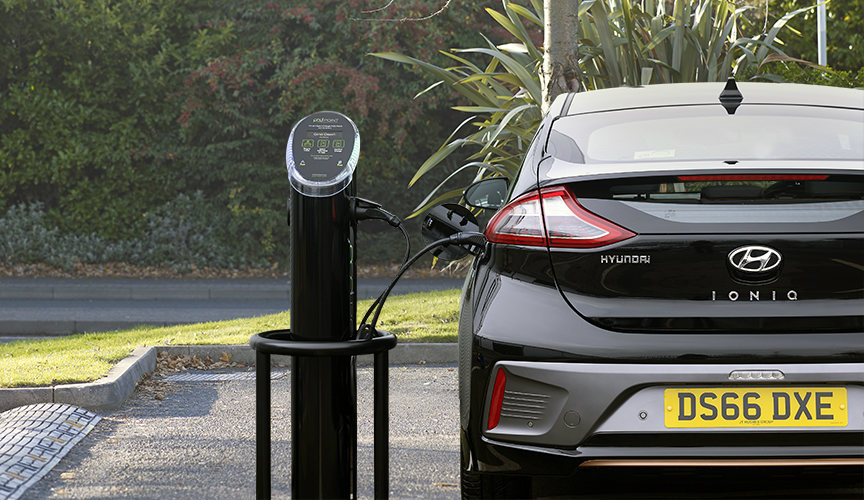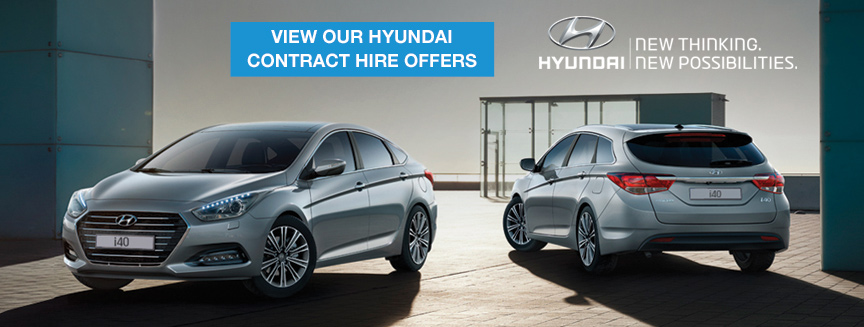https://www.jthughes.co.uk/Blog/View/Are-company-fleets-plugging-into-Shropshire/3454
Are company fleets plugging into Shropshire?

Despite increasing vehicle choice, an expanding electric car charging point network in Shropshire and rising range performance, it’s pretty clear that plug-in cars (EVs) - pure electric or plug-in hybrid, have yet to make a real impact in the all-important fleet sector. Nationally, it’s still more a case of better the devil you know about petrol and diesel, than be concerned with the question marks hanging over EVs.
Nationally, it’s still more a case of better the devil you know about petrol and diesel, than be concerned with the question marks hanging over EVs. But let’s not be hasty. Things look set fair to change for fleet decision-makers and company car drivers. More choice and an expanding infrastructure
More choice and an expanding infrastructure
We contacted a number of Shropshire businesses and by all accounts, the subject has yet to secure a place on many radars, let alone a strategic opportunity to take forward. A low, even disinterested starting point indeed, but electric and plug-in hybrid vehicles are surely on the way to join the petrol and diesel establishment.
Vehicle manufacturer developments and infrastructure initiatives are gathering unstoppable momentum. Put aside the ‘ifs’, it’s much more a ‘when’ question now. More and more electric and plug-in hybrid vehicles will be appearing on fleets, delivering financial benefits and reducing emissions.
To some extent at least. And whilst the groundswell of adoption will be greater in populated areas, there will be progressively fewer issues standing in the way for businesses in rural areas to follow suit. Even now, although petrol and diesel power is destined to be around for a long time yet, EVs are fully fit for purpose for many organisations’ needs.
Shropshire need not be an exception. And moreover, with the rapid pace change in computing and mobile technologies being all too familiar, the EV revolution may well accelerate in a similar way. Who knows, before too long a battery range of 500+ miles might seem unremarkable?
National picture: promoting demand and growth
So what’s moving and shaking at a national level, that’s of interest to Shropshire businesses? Or company car drivers based in Shropshire for that matter. For one thing, the numbers are beginning to tell the story.
In 2016, over 35,000 ‘plug in’ cars were registered – over 30% more than in 2015. Around 70% of which were business purchases. There’s a long way to go, but with a company car park of nearly one million vehicles…
Go Ultra Low, the scheme set up by the government and the car industry is headlining that more than 100,000 EVs could be on the road by the middle of this year.
Based on AA members’ car buying intentions and future trends, the AA expects that there will be more than 500,000 plug-in cars in use by 2020.
By then, one major manufacturer believes that EVs will represent up to 10% of its global car sales. Another predicts that EVs will account for a quarter of its global passenger car market by 2025. In its 2017 Global Automotive Executive Survey, KPMG reports that ‘e-mobility’ could be up to 30% of global production by 2023. This could then be the first time in history that internal combustion engine production will have significantly decreased.
The fleet position.
Arval, one of the UK’s largest fleet management companies, reports that the main issue is an educational one. Arval Fleet Consultant David Watts, said: ”There needs to be more information and examples to show fleet operators where plug-in cars and vans can work and which type are the most suitable".
Beyond that, charging points are problematic. Access is unnecessarily difficult with a need for membership of multiple networks in order to access the nationwide infrastructure. What is needed, is the equivalent of a fuel card for charging points, making the process fast, easy and trackable.”
Back to the present, Go Ultra Low is actively recognising organisations which pledge that EVs will comprise at least 5% of their fleets by 2020. To date, more than 80 organisations, including several in Shropshire, have achieved Go Ultra Low status.

A rising tide in Shropshire?
Newport-based fleet operator FVR, a Go Ultra Low member, believes that there will be many more electric vehicles on the road as battery technology improves.
Darren Driscoll, FVR Commercial Director said: “We are seeing a surge of interest in plug-in hybrid cars – delivering five vehicles in January with enquiries for several more.
In our experience, there are two main motivating factors for our customers. Low daily mileage drivers can run their vehicles solely on electric and hence dramatically reducing fuel costs.
The other big plus is company car tax reduction. As things stand with benefit-in-kind rates, one of our customers who currently has a 29% liability, will enjoy a reduction to just 7% by switching to a plug in hybrid vehicle.”
Richard Turner, who works for Go Ultra Low member Arrow County Supplies, believes that running an EV makes sense for business drivers in Shropshire with the right journey profile.
"I reckon that 70% of the miles I drive in my Mitsubishi PHEV are ‘electric’; the fuel savings are therefore substantial. I also enjoy significant tax benefits and although I didn’t have an ‘environmental agenda’, after 12,000 miles I have no regrets of making the switch to a plug-in vehicle".
It’s good that vehicle choice is opening up, but the support infrastructure in Shropshire, particularly in Shrewsbury, needs to improve. More, easy-to-use charging points with good accessibility are required for the growing number of EV drivers.
Go Ultra Low member, Shrewsbury-based Northern Vehicles, takes a realistic view of why EVs have yet to take-off for the fleet market/business user, but is confident that growth will happen in time.
Director David Cooke says: “As short-term contract specialists, our experience suggests that the demand for EVs appears may be held back due to a lack of ownership cost transparency and a need to improve understanding. Businesses need to make well-informed decisions and published running costs – notably fuel consumption figures, have to be trusted to overcome resistance.”
Driver demands
According to research, late last year, almost 700,000 UK motorists would join the EV revolution, if they were given the opportunity by their employers. Only 25% of businesses currently offer electric company cars to employees and significantly, 86% of their drivers said they would be likely to consider an electric car next time around.
We didn’t set out to report on the manufacturer position, but Hyundai told us that to-date it had received 450 fleet orders for its new Hyundai IONIQ. Around 200 test drives have been completed for the hybrid and electric versions. Extrapolate those numbers across all manufacturer EV offers and draw your own conclusions.
Evolution not revolution
The EV stage appears to be set. Not for a massive revolution – that’s rare in the automotive world, but an exciting evolution. One of the most far-reaching automotive shake-ups for a century? Most probably. Shropshire businesses may pro-actively wish to do their bit and ensure that 2017 is a landmark year for EV registrations. But whatever happens, there’s little doubt it will be an important stepping stone.